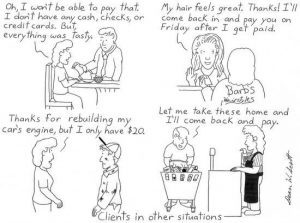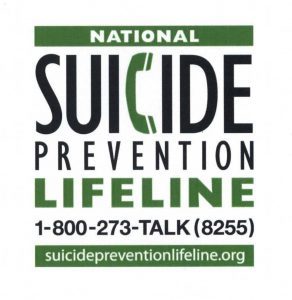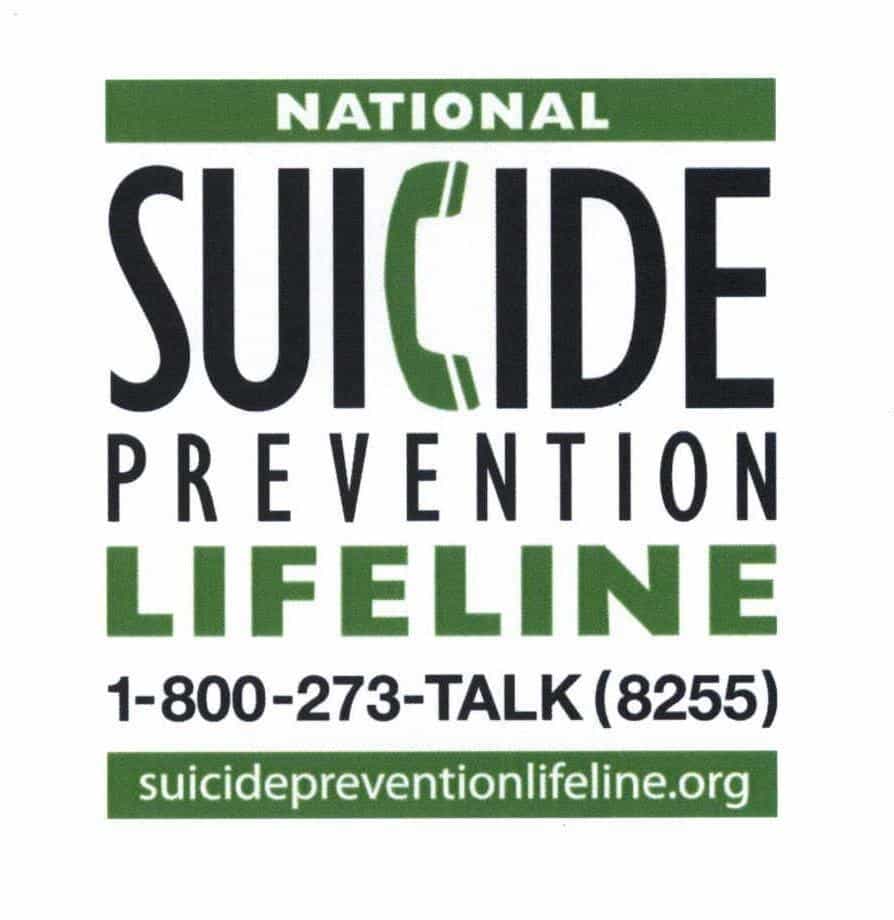This is a topic that is difficult for me to talk about. It is something that all veterinarians are aware of, but many of our clients are not. There is a silent epidemic coursing through my chosen profession: suicide. I am in general a very upbeat person and like to keep things light and happy, so writing a post like this is taking me out of my comfort zone, but it is important to spread the word. The American Veterinary Medicine Association (AVMA) came out with a study in 2015 that found that 1 in 6 veterinarians have considered suicide since graduation. In this study, more than 10,000 veterinarians answered a questionnaire, the results of which were then compared to national figures from the CDC. A troubling percentage of veterinarians were found to have serious psychological distress. Veterinarians were 1.5 times more likely to have experienced depressive episodes and 3 times more likely to have considered suicide than the average American adult.
Why is this happening?
Similar studies performed in Australia, New Zealand, and the UK all presented comparable results. This indicates that the problem is not confined to the United States, but rather stems from the practice of veterinary medicine itself. What might be some factors that are contributing to this serious problem?
Personality Traits of Veterinarians
Veterinary school is very difficult to get into. The acceptance rate for the class of 2020 at the University of Pennsylvania School of Veterinary Medicine, where I attended, was 8%. Good grades, advanced science classes, hours of experience with animals, and letters of recommendation are all required for admission. The people who make it in – and through – veterinary school are overwhelmingly driven and intelligent and make many sacrifices to pursue their chosen profession. Because we dedicate so much of our lives towards becoming veterinarians, we often let it become our lives. We live and breathe veterinary medicine. We get used to setting, and meeting, high expectations for ourselves. So when things don’t go as planned – when we encounter problems where the solutions are out of our hands – it takes a substantial emotional toll.
Compassion Fatigue
Merriam Webster describes compassion fatigue as “the physical and mental exhaustion and emotional withdrawal experienced by those that care for sick or traumatized people over an extended period of time.” This has also been called vicarious traumatization, which refers to the transmission of stress through observation of traumatic events. Some even believe this to be similar to post-traumatic stress disorder, except it applies to those affected by someone else’s trauma, instead of their own.
Exposure to death is an unfortunate consequence of our job. No matter what the circumstances are surrounding the decision to euthanize a pet, it’s a task we do not take lightly. Whether it’s a dog we just met who was hit by a car, or an old cat in kidney failure we have been seeing for years, it weighs on us heavily to end a life and witness the owner’s reaction. Veterinarians who work for shelters often perform staggering numbers of euthanasias. Chien Chih-cheng, a veterinarian who euthanized 700 animals over the course of two years, committed suicide due to the stress of her work and the consequent backlash from social media.
Moral stressors – when a person acts against their personal or professional values – are also a leading cause of stress in veterinary medicine. How should a veterinarian react when when the owner of a pet with a treatable condition would rather euthanize it than treat it because they can’t afford the proper care?
Veterinary medicine can also be an isolating profession. Most clinicians work alone or in small groups where there is little room for professional collaboration. The weight of this isolation and fear of making professional mistakes has considerable emotional impacts. Fear of being judged by clients and others in the veterinary community can be paralyzing, causing us to second guess ourselves and our medicine.
Financial Debt/Burden
Pretty much every vet will at one point hear a client or friend say that a vet is “in it for the money.” In the vast majority of cases, this couldn’t be further from the truth. We became veterinarians because we love animals and love to help them. The median salary for a veterinarian is $88,490/year, and typically lower for equine veterinarians and those living in rural areas. Compare this to the average salary of a GP human doctor ($130,898/year, and higher for specialists) and you may understand why this claim strikes a nerve. Veterinary school is four years just like medical school. We face many of the same demands and prerequisites that human doctors do, plus the challenge of patients who can’t talk to us to tell us what’s wrong.
Veterinary school is not cheap either. The AVMA reported that the average educational debt for graduating veterinarians in 2016 was $143,757.82 and over 20% of students had at least $200,000 in debt. Veterinarians who work hard to pay off debt and make a modest living still get barraged by comments on how expensive veterinary care is. It is exhausting and demoralizing. Owning an animal is a privilege, not a right, and it comes with responsibilities like provision of basic medical care. One shouldn’t blame their veterinarian for trying to run a business or shame them into treating your animal for free or next to nothing. I have heard so many stories of people upset with veterinarians requesting payment at time of service and saying “If you truly loved animals you would help my pet…” People don’t take their car to the mechanic, get an oil change, and then say, “Oh, I don’t have the money right now, but I’ll come back and pay another time.” Why hold vets to a different standard?

Social Media and Bullying
This is huge. The internet is a wonderful thing people can use to their benefit, but it is also a place ripe for abuse. Every veterinary practice is now expected to have a Facebook page. These Facebook pages have areas where the public can leave reviews and believe me when I say things can get nasty. I know of several cases where one person was unhappy with the service they received and recruited as many people as they could to go to Facebook and leave bad reviews. Upwards of 50 people were going to a Facebook page of a veterinary clinic they had never stepped foot in just to leave one star reviews and insult the veterinarian based on one side of a story they were hearing second hand. It’s insanity!
Technology can lead to stress in our profession in other ways. We are constantly connected to our clients and jobs via Facebook, text messages, and emails and can rarely can truly escape or decompress. Random acquaintances who know we are veterinarians can send us messages asking our opinions about their uncle’s friend’s 15 year old female spayed golden retriever who has been itchy for three months. We are expected to be able to diagnose and treat patients over the internet by looking at blurry cell phone photos… for free! Clients oftentimes have unrealistically high expectations for us that we feel we have to try to meet. If we take time off for ourselves and do not respond to these random messages, we can be called uncompassionate or heartless.
Access to Drugs
The number one method of suicide in veterinarians was found to be poisoning by injectable barbituates which is a clear contrast to the methods of suicide used by the average adult population. Veterinarians have ready access to and use drugs daily that are specifically made to kill. They have extensive knowledge about drugs and their effects and dosages. We use euthanasia in our animals as a way to end suffering, so some veterinarians may make the leap that suicide and death is the best way to end their own suffering.
What can you do about it?
There are many things you can do as a client, a friend of a veterinarian, or a colleague in the veterinary profession to try and help combat stress and the high incidence of suicide.
Be A Good Client and Pet Owner

When you’re happy with your veterinarian’s service, let them know and share what they did right. A small “thank you” and voicing your appreciation goes an extremely long way. It helps us know that all of our hard work is worth it because we are making a difference. Respect our boundaries and try to only contact us about veterinary matters during the work day. Show some interest in our lives outside of the hospital and get to know us as fellow human beings. Work-life balance is important, so recognize we often have families that mean a lot to us too.
Be a responsible pet owner. One of the best feelings we get as veterinarians is helping a pet owner who we can tell genuinely loves their pet and treats them as part of the family. Stay up to date on preventive measures such as flea/tick medication, deworming, heartworm preventative and testing, spay/neutering, and vaccinations. Prepare for the worst and have plans in place for emergency situations. Set aside some money you can use as an “emergency fund” for your pet. Listen to our recommendations – we want the best for your pets same as you do. Feel free to ask questions and for explanations or clarifications. Communication is a two way street and is paramount to ensuring there are few mistakes and misunderstandings.
Stick Together As Professionals
Veterinarians are all in the same boat. We should support each other and be each others’ advocates. Bashing other veterinarians, especially in front of clients or on social media, is neither helpful nor constructive. Seeing other veterinarians as competition instead of colleagues is bad for the profession. Join online groups for support and always be respectful when sharing your opinions.
Know the Warning Signs and Be There
If you are friends with a veterinarian, familiarize yourself with the three major warning signs to look out for: clinical depression, changes in behavior, and talk of suicide. Clinical depression isn’t a temporary “off day.” Symptoms include sadness, hopelessness, low energy, irritability, loss of interest in usual activities, changes in sleep and appetite. These symptoms can interfere with the ability to work and perform day to day activities. Changes in behavior are strongly associated with increased suicide risk.

If you see any of these signs in an individual, be there for them and show them you care. Approach them and ask how they are feeling. Listen carefully and thoughtfully. If you think they are suicidal, find a crisis hotline and stay with them as they call. If they refuse to call, you can call them yourself and ask for guidance. If you feel comfortable leaving them, make plans to see them the next day. Aiding someone suicidal is all about helping them find hope and see other ways to deal with their problems.
I am lucky to have a wonderful support system in both my family, friends, and fabulous clients. Even in my difficult days, I am not one of the 1 in 6 who have contemplated suicide. However, I can see how it might happen and have witnessed many fellow veterinarians struggle and fall out of love with their chosen career for many of the reasons I listed in this blog post. I hope that every veterinarian can be as lucky as I am. Veterinarians need to learn to put themselves and their care first – taking time to make themselves feel refreshed and renewed. Life is full of joys and experiences, even outside the animal world! Together, I really believe we can combat this epidemic and help make veterinary medicine closer to the joyful, meaningful profession that people imagine it to be.

